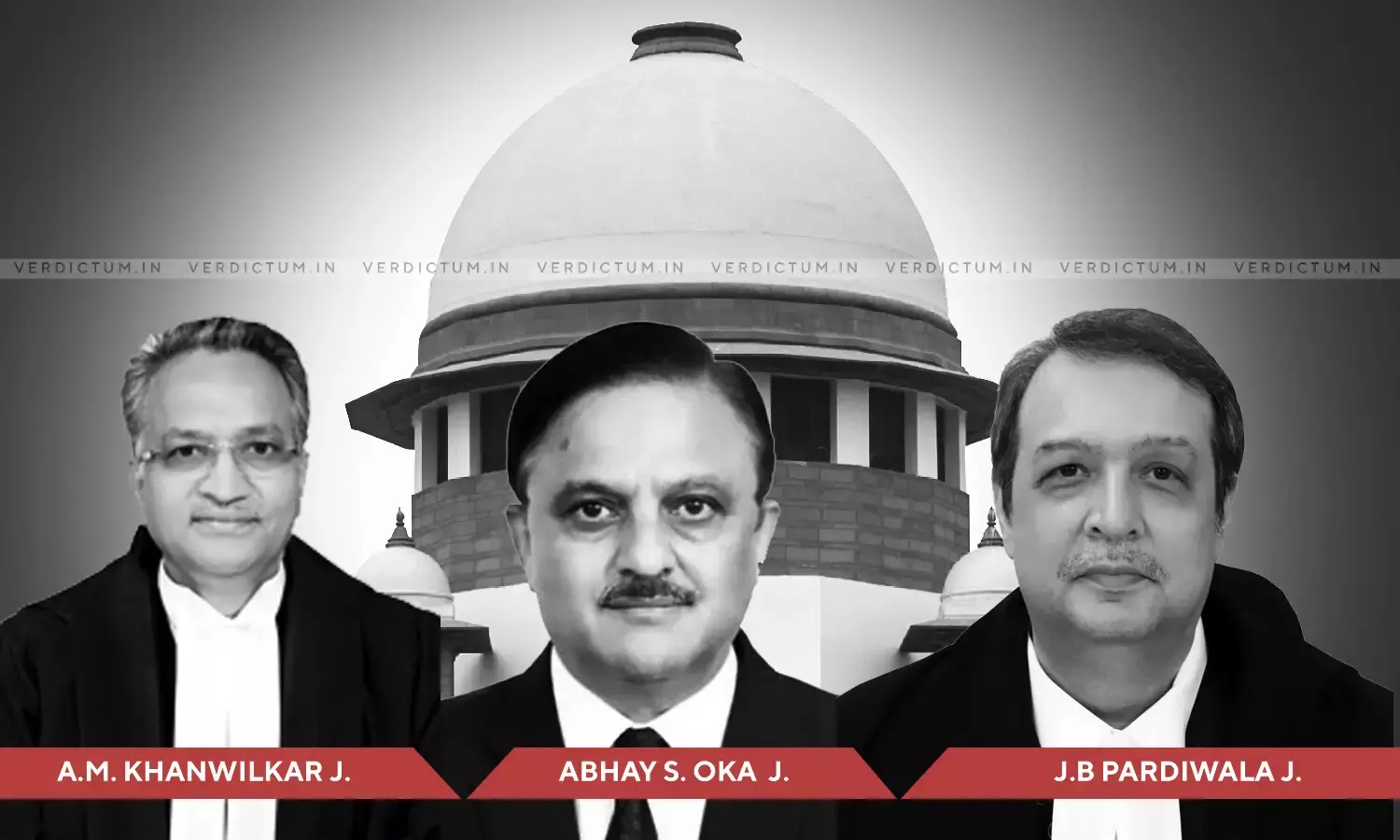Post Mortem Report Cannot Be Substantive Evidence - SC Holds Murder Accused Cannot Be Discharged Solely Based On It
While observing that the post mortem report is not substantive evidence, the Supreme Court has set aside the decision of the Trial Court discharging murder accused from the offence punishable under Section 302 of the Indian Penal Code and framing charge for the offence of culpable homicide punishable under Section 304 of the IPC by relying solely upon post mortem report.
The Bench of Justice AM Khanwilkar, Justice Abhay S Oka and Justice JB Pardiwala observed "The post mortem report, by itself, does not constitute substantive evidence."
"Ultimately, upon appreciation of the entire evidence on record at the end of the trial, the trial court may take one view or the other i.e. whether it is a case of murder or case of culpable homicide. But at the stage of framing of the charge, the trial court could not have reached to such a conclusion merely relying upon the port mortem report on record.", the Bench noted.
In this case the FIR was registered against accused persons for the offences punishable under Sections 147, 354, 323 and 451 respectively of the IPC for assaulting and causing injuries to two women. The deceased (wife of the appellant) had to be shifted to a hospital as she suffered injuries on her body. No sooner the deceased was brought to the hospital than she was declared dead by the doctor on duty. In such circumstances, Section 302 of the IPC came to be added in the FIR. The cause of death of the deceased as assigned in the post mortem was "cardio respiratory failure".
Ultimately, the Trial Court discharged the accused persons of the offence of murder punishable under Section 302 of the IPC and proceeded to frame charge against the accused persons for the offence of culpable homicide punishable under Section 304 of the IPC.
The High Court affirmed the order passed by the Trial Court discharging the accused persons of the offence of murder.
Feeling aggrieved the appellant approached the Supreme Court.
Advocate Ramesh Kumar Mishra appeared for the appellant whereas Advocate Dhiraj Abraham appeared for the accused persons.
The Court noted thus "The trial court thought fit to discharge the accused persons from the offence of murder and proceeded to frame charge for the offence of culpable homicide under Section 304 of the IPC by only taking into consideration the medical evidence on record."
"The trial court as well as the High Court got persuaded by the fact that the cause of death of the deceased as assigned in the post mortem report being the "cardio respiratory failure", the same cannot be said to be having any nexus with the alleged assault that was laid on the deceased. Such approach of the trial court is not correct and cannot be countenanced in law.", the Court observed further.
The Court stated that whether the cause of death had any nexus with the alleged assault on the deceased by the accused persons could have been determined only after the recoding of oral evidence of the eye witnesses and the expert witness along with the other substantive evidence on record.
The Court emphasized that the prosecution should have been given opportunity to prove all the relevant facts including the post mortem report through the medical officer concerned by leading oral evidence and thereby seek the opinion of the expert.
"It was too early on the part of the trial court as well as the High Court to arrive at the conclusion that since no serious injuries were noted in the post mortem report, the death of the deceased on account of "cardio respiratory failure" cannot be said to be having any nexus with the incident in question.", the Court opined.
The Court also made another observation "Once the trial court decides to discharge an accused person from the offence punishable under Section 302 of the IPC and proceeds to frame the lesser charge for the offence punishable under Section 304 Part II of the IPC, the prosecution thereafter would not be in a position to lead any evidence beyond the charges framed. To put it otherwise, the prosecution will be thereafter compelled to proceed as if it has now to establish only the case of culpable homicide and not murder. On the other hand, even if the trial court proceeds to frame charge under Section 302 IPC in accordance with the case put up by the prosecution still it would be open for the accused to persuade the Court at the end of the trial that the case falls only within the ambit of culpable homicide punishable under Section 304 of IPC."
Therefore the Court set aside the orders passed by the High Court and the Trial Court. The Court directed the Trial Court to pass a fresh order framing charge in accordance with law.
Case Title- Ghulam Hassan Beigh v. Mohammad Maqbool Magrey & Ors.
Click here to read/download the Judgment




